A report released recently by E4 The Future, which promotes residential clean energy and sustainability, examines the body of research supporting the considerable benefits of home performance/energy efficiency measures. The report concludes that not only do energy efficiency measures, such as increased insulation and air sealing, improved heating, and ventilation increase the comfort of the home, but also provide considerable occupant health benefits.
Occupant Health Benefits of Residential Energy Efficiency builds upon a broader literature review conducted by the U.S. Department of Energy (DOE) Home RX: Health Benefits of Home Performance: A Review of Current Evidence, which was developed to summarize studies that evaluated occupant health-related outcomes associated with energy upgrades and home performance improvements.
E4TheFuture seeks to identify ways the results can be better leveraged in policy and consumer messaging about the benefits of home energy efficiency activities.
The organization analyzed the results of 12 residential energy efficiency and two related ventilation strategies studies that all document improvements in occupant health or indoor environmental conditions. Some studies also observed reductions in emergency department or hospital visits in those homes which have occupants that suffer from asthma or other respiratory ailments.
Improvements in asthma symptoms are significant because 1 in 14 adults have asthma, and it is even more prevalent in low-income households (16 percent of adults in the DOE Weatherization Program National Evaluation reported having asthma.). Experts estimate that 40 percent of diagnosed asthma is associated with home exposures (e.g., moisture, temperature variations, pests), some of which can be improved through energy efficiency activities.
Energy Efficiency Improvements Offer Other Health Benefits
While most residential energy efficiency work is not focused on improving occupant health, common energy efficiency practices can create a drier home with more consistent temperatures, fewer air indoor pollutants and reduced allergens. In addition to improving the health of occupants who suffer from Asthma and other respiratory ailments, the report identifies other potential health benefits of a bundled set of energy efficiency activities (insulation, heating upgrade, ventilation and efficient cooking appliances), including a reduced risk of cancer, hypertension and cardiovascular issues and mental health problems.
Leveraging the Results
The key findings of this study can be used to encourage residential energy efficiency program administrators, implementers, regulators, funders and advocates to build their knowledge and understanding of the potential occupant health benefits of energy efficient activities.
For builders and those who work within the energy efficiency space, this analysis provides credible evidence for homeowners about the associated health benefits of home energy efficiency activities and should be utilized to help consumers understand the potential health benefits of such efforts.
